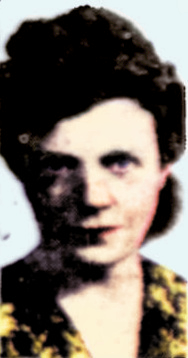The Pittsburgh Press (April 16, 1941)

I DARE SAY —
……
Retreat to glory
……
By Florence Fisher Parry
Since the war started, I have put in this column two pieces of writing that seemed to me likely to live after the war. One was a letter from a British aviator to his mother. The other was a portion of The White Cliffs (which I am glad to find has since become a best-seller).
And now I am setting down another poem, this one by Robert Nathan, who seldom writes in verse, appears in the current Harper’s Monthly Magazine and comes at a fortuitous moment; for the Nazis cynically say that the British are facing another “glorious retreat” into the Aegean Sea.
DUNKIRK
By Robert NathanWill came back from school that day,
And he had little to say.
But he stood a long time looking down
To where the gray-green Channel water
Slapped at the foot of the little town,
And to where his boat, the Sarah P,
Bobbed at the tide on an even keel,
With her one old sail, patched at the leech,
Furled like a slattern down at heel.
He stood for a while above the beach,
He saw how the wind and current caught her;
He looked a long time out to sea.
There was steady wind, and the sky was pale,
And a haze in the east that looked like smoke.Will went back to the house to dress.
He was half way through, when his sister Bess,
Who was near fourteen, and younger than he
By just two years, came home from play.
She asked him, “Where are you going, Will?”
He said, “For a good long sail.”
“Can I come along?”
“No, Bess,” he spoke.
“I may be gone for a night and a day.”
Bess looked at him. She kept very still.
She had heard the news of the Flanders rout,
How the English were trapped above Dunkirk,
And the fleet had gone to get them out—
But everyone thought that it wouldn’t work.
There was too much fear, there was too much doubt.She looked at him, and he looked at her.
They were English children, born and bred.
He frowned her down, but she wouldn’t stir.
She shook her proud young head.
“You’ll need a crew,” she said.They raised the sail on the Sarah P,
Like a penoncel on a young knight’s lance,
And headed the Sarah out to sea,
To bring their soldiers home from France.There was no command, there was no set plan,
But six hundred boats went out with them
On the gray-green waters, sailing fast,
River excursion and fisherman,
Tug and schooner and racing M,
And the little boats came following last.From every harbor and town they went
Who had sailed their craft in the sun and rain,
From the South Downs, from the cliffs of Kent,
From the village street, from the country lane.There are twenty miles of rolling sea
From coast to coast, by the seagull’s flight,
But the tides were fair and the wind was free,
And they raised Dunkirk by the fall of night.They raised Dunkirk with its harbor torn
By the blasted stern and the sunken prow;
They had raced for fun on an English tide,
They were English children bred and born,
And whether they lived, or whether they died,
They raced for England now.Bess was as white as the Sarah’s sail,
She set her teeth and smiled at Will.
He held his course for the smoky veil
Where the harbor narrowed thin and long.
The British ships were firing strong.He took the Sarah into his hands,
He drove her in through fire and death
To the wet men waiting on the sands.
He got his load and he got his breath,
And she came about, and the wind fought her.He shut his eyes and he tried to pray.
He saw his England where she lay,
The wind’s green home, the sea’s proud daughter,
Still in the moonlight, dreaming deep,
The English cliffs and the English loam—
He had fourteen men to get away,
And the moon was clear, and the night like day
For planes to see where the white sails creep
Over the black water.He closed his eyes and he prayed for her;
He prayed to the men who had made her great,
Who had built her land of forest and park,
Who had made the seas an English lake;
He prayed for a fog to bring the dark;
He prayed to get home for England’s sake.
And the fog came down on the rolling sea,
And covered the ships with English mist.
The diving planes were baffled and blind.For Nelson was there in the Victory,
With his one good eye, and his sullen twist,
And guns were out on The Golden Hind,
Their shot flashed over the Sarah P.
He could hear them cheer as he came about.By burning wharves, by battered slips,
Galleon, frigate, and brigantine,
The old dead Captains fought their ships,
And the great dead Admirals led the line.
It was England’s night, it was England’s sea.The fog rolled over the harbor key.
Bess held to the stays, and conned him out.And all through the dark, while the Sarah’s wake
Hissed behind him, and vanished in foam,
There at his side sat Francis Drake,
And held him true, and steered him home.